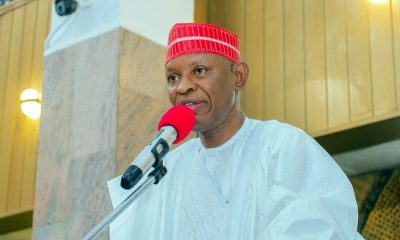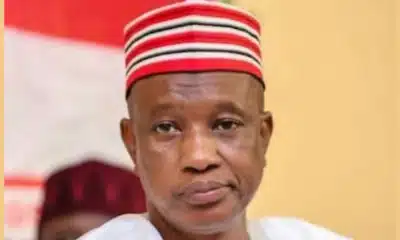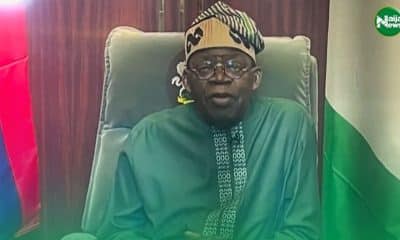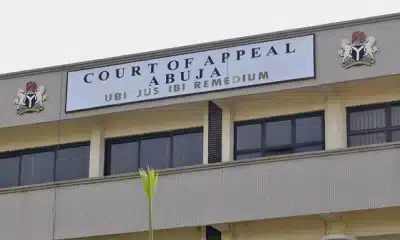Nigeria News
Northern Elders Urge Caution In Kano Emirate Crisis Amid Political Tensions
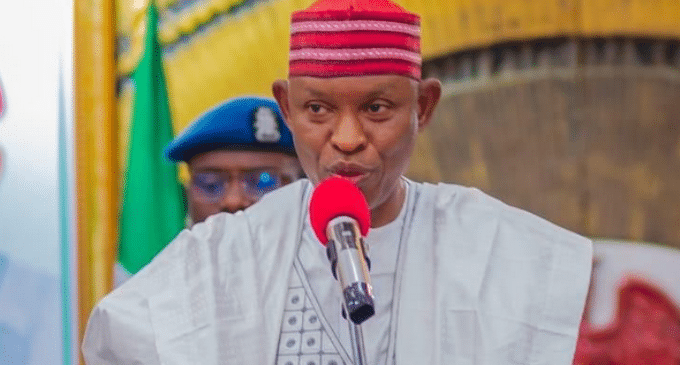
The Northern Elders Forum (NEF) has voiced serious concerns regarding the recent upheavals within the Kano State emirate system, which saw the controversial removal of five first-class emirs.
The forum, through its spokesperson, Abdul-Azeez Suleiman, issued a statement on Friday calling for calm and restraint among all parties involved, particularly Governor Abba Yusuf and other politicians, to prevent any outbreak of violence.
This tension has escalated following Governor Yusuf’s decision on Thursday to reinstate Lamido Sanusi as the Emir of Kano.
Sanusi’s reinstatement comes four years after his initial deposition and is part of a significant overhaul that saw the dissolution of the four additional emirates—Kano, Gaya, Karaye, Bichi, and Rano—established by the previous governor, Abdullahi Ganduje.
The governor’s actions were based on a new bill signed into law, repealing the State Emirate Council Law of 2019, which had originally expanded the emirate system.
The Kano State House of Assembly had swiftly passed the bill, which also called for the removal of the current emirs appointed under the former administration.
Governor Yusuf stated that the reinstatement of Sanusi fulfilled a key campaign promise and asserted that the new law aims to restore traditional governance structures in Kano to their status prior to 2019.
The statement reads, “The Northern Elders Forum is extremely worried and profoundly agitated by the recent events in Kano, where emirates have been multiplied and traditional rulers have been dethroned and replaced, saying it is a clear example of the struggles faced by traditional rulers in the country.
“The NEF is worried that recent crisis surrounding the emirate in Kano state has raised tensions and concerns among the public. As responsible citizens, we urge the government of Kano state and politicians involved to exercise caution in handling this sensitive issue in order to prevent further escalation of tensions.
“It is important for all parties involved to approach this matter with the utmost care and professionalism, keeping in mind the potential consequences of their actions. Rash decisions and inflammatory statements can only serve to worsen the situation and jeopardize the peace and stability of the state.
“We also call upon the public to remain calm and law-abiding in the face of this crisis. It is crucial that we do not engage in any actions that could potentially threaten the peace and security of the state. Violence and unrest will only serve to further divide us and hinder any chance of finding a peaceful resolution to the current situation.
“In times of crisis, it is imperative that we come together as a community and work towards finding common ground and mutual understanding. Let us all strive to prioritize peace and harmony, and avoid actions that could lead to further discord and conflict.
“The NEF however notes that the traditional institution in Nigeria has long been facing challenges and obstacles that have rendered it weak and ineffective. Now, this problem seems to be particularly acute in Kano, where a power struggle has led to the creation of multiple emirates, thereby diluting the authority and influence of traditional rulers in the region.
“The multiplication and duplicity of emirates in Kano is a clear attempt to weaken the traditional institution and undermine the authority of the traditional rulers. By creating multiple emirates, the power and influence of individual traditional rulers are diluted, making it easier for politicians to control and manipulate them.
“Furthermore, the arbitrary dethronement and replacement of high-ranking traditional rulers in Kano not only weaken the authority and legitimacy of traditional rulers but also send a message that their role and relevance in society are easily dispensable.
“This move is not only threatening the unity and cohesion of the traditional structure but also undermining the centuries-old customs, values, and traditions that have been the bedrock of the Nigerian society.
“The perpetuation of these challenges is a reflection of the wider issue of the emasculation of traditional rulers in Nigeria. Over the years, traditional rulers have been systematically sidelined and disempowered by various administrative mechanisms and so-called “reforms” that have only served to weaken their influence and render their role ineffectual.
“In order to address these challenges and reinvigorate the traditional institution in Nigeria, it is imperative that traditional rulers be re-empowered and given the recognition and support they deserve. This can only be achieved through a concerted effort to restore the statutory recognition of traditional rulers in the country and provide them with the necessary resources and authority to fulfill their duties effectively.
“Without the necessary empowerment and support, traditional rulers will continue to struggle to play a meaningful role in society, particularly in addressing pressing issues such as crime and drug abuse. Their marginalization not only diminishes their ability to effectively govern their domains but also leaves them vulnerable to political interference and manipulation.”

